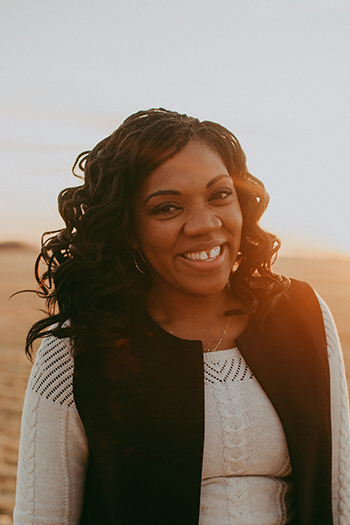“Your personal stance is something that you need to first take a look at”
Equity, diversity and inclusion. EDI. You’ve likely heard these words a lot these past few years. And, if you’re in the job market, you’ve probably seen a lot of postings from companies and organizations that affirm they are dedicated to them.
But what do those words really mean?
In this episode, we talk to Rondah Worrell-Maik from NAIT’s Equity, Diversity and Inclusion Office about how each of us can help foster an inclusive workplace, the tangible benefits of that, and what new grads seeking an equitable workplace should look for when applying for positions.
Listen to Episode 7
Listen to the full episode below or read an excerpt.
Techlifetoday: What makes you passionate about Equity Diversity and Inclusion (EDI)?
 Rondah Worrell-Maik: This is something that I've been interested in before it had a name.
Rondah Worrell-Maik: This is something that I've been interested in before it had a name.
I’ve felt that tension in work placements, not feeling a sense of belonging or knowing where I fit, and not really understanding what that meant – even from school age and understanding myself in an environment where I looked different from everyone.
I started to wonder a lot about seeing myself in leadership positions. And I started to realize I didn't see a lot of women of colour in senior executive positions in the organizations that I was part of, and really wanted to understand why that was. So that's, I think, where my EDI journey started.
For new grads who are heading into the workforce, what advice would you give in terms of what steps they can take to foster an inclusive workplace?
There’s a lot of internal personal reflection that’s necessary to understand whether you are in a dominant position and whether you're in a subordinate or marginalized position and what that means to you. Sometimes when you embark on a diversity, inclusion and equity journey, you are looking externally, but I think that your personal stance is something that you need to first take a look at.
As you start a journey like this and want to learn more, I would emphasize that desire to learn and not expect others to explain it to you. Take the time to read resources and listen to podcasts and look at different perspectives.
For people who are trying to align their professional decisions with their values, how would they be able to tell if a company is genuinely committed to those values or if it is just optics?
I've definitely come across EDI statements that are on the front of websites, but then as you dig through, you don't see any evidence of it beyond [that].
Look at the organization beyond the front page. Look at whether they have employee resource groups, different demographics of employees, training programs, if there are statements in the application process that emphasize a desire for implementing equity, diversity and inclusion in the organization.
I’ve heard in the past from employers who worry about tokenizing the only person of colour in a pool of applications. But nobody wants to just be hired because they’re “something.” How do you articulate the difference between giving someone an opportunity versus checking off a diversity quota?
You are crippling your organization by hiring people that continue to look like you. It isn't about things like affirmative action and making sure that you have representation. It's recognizing that if you want your company to be successful, get some people with differing viewpoints in that space.
It has nothing to do with hiring a person because they are an underrepresented individual. You’re hiring them because you have made a misstep in your organization not having a different voice at the table. And so you're remedying that.
How do you draw the line between offering education and taking on the labour of someone who’s unwilling to do the work?
I think that as people of colour, as people who are part of equity-seeking groups, it's not our responsibility to educate, but it is our responsibility to advocate. Some might disagree with that. But I will always advocate for myself, that will be my standpoint for probably the rest of my life and [I] would encourage younger folks.
"As people of colour ... it's not our responsibility to educate, but it is our responsibility to advocate."
You don't necessarily need to move throughout life educating people, but if you are speaking your truth, and I'm talking about your experience, people will hear and listen to those things.